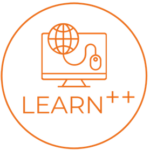Gamifying Learning with LearnPlusPlus Student Response System
Gamification is a powerful educational strategy that leverages game elements to enhance student engagement, motivation, and learning outcomes. When combined with Student Response Systems (SRS), gamification becomes a dynamic and effective approach to making learning more enjoyable and impactful for students. In this article, we will explore how SRS can be used to gamify the learning experience, creating an interactive and immersive environment that fosters active participation and deeper understanding.
Interactive Quizzes and Polls @ Sr Secondary School
- In a biology class, the teacher uses SRS to create an interactive quiz on the human body systems. Students respond to the MCQ questions using their clickers, and their answers are instantly recorded and evaluated. The leaderboard shows the top performers, encouraging friendly competition among the students.
- In a high school physics class, the teacher uses SRS to conduct opinion polls on various scientific theories. Students share their perspectives and vote on different options using their clickers. The visualized results spark engaging class discussions, allowing students to explore different viewpoints and deepen their understanding.
Leaderboards and Competition in JEE Class
- In a math class for JEE repeaters, the teacher displays a leaderboard on the classroom screen, showing the top performers in solving complex equations. Students strive to improve their rankings by actively participating and demonstrating their problem-solving skills.
- In a language arts class, the teacher introduces a vocabulary quiz using SRS. As students answer the questions, their scores are displayed on the leaderboard. This friendly competition motivates students to expand their vocabulary and achieve higher scores.
Rewards and Badges @ 6th Class CBSE School
- In a geography class, the teacher introduces a reward system where students earn virtual badges for correctly identifying countries on the map. Each badge represents a different level of proficiency, encouraging students to explore and learn more about different regions.
- In a history class, the teacher implements a reward system using SRS. Students earn virtual coins for answering historical trivia questions accurately. These coins can be redeemed for small rewards or privileges, creating a sense of achievement and excitement.
Team-Based Learning – for Promoting Healthy Competitions
- In a science class, the teacher divides students into teams and assigns them clickers to respond to questions collaboratively. Teams work together to solve science problems and earn points collectively. The team leaderboard promotes teamwork and healthy competition.
- In a computer programming class, students form coding teams and use SRS to solve coding challenges. Each team member contributes their ideas and selects the correct programming solution using their clickers. This team-based approach enhances collaboration and problem-solving skills.
Immediate Feedback and Remediation
- In a chemistry class, students respond to SRS questions about chemical reactions. Instant feedback is provided, highlighting the correct answers and explaining the misconceptions behind incorrect choices. The teacher then addresses these misconceptions through targeted explanations and examples.
- In a mathematics class, students use SRS to solve algebraic equations. Immediate feedback is given for each response, allowing students to identify errors in their calculations. The teacher provides on-the-spot guidance to help students rectify their mistakes and improve their problem-solving skills.
Quest-based Learning
- In a history class, the teacher designs a quest-based learning scenario using SRS. Students embark on a virtual journey to explore historical events and answer quiz questions at different stages. As they progress through the levels, they unlock new challenges and accumulate points.
- In a language class, students participate in a language quest using SRS. They complete language-related tasks, such as vocabulary quizzes, pronunciation exercises, and grammar challenges. Each completed task earns them points, and they work towards achieving higher levels of language proficiency.
Classroom Challenges and Collaborative Problem-solving – MBA Classroom
- In a business management class, the teacher conducts real-life case studies using SRS. Students analyze business scenarios and propose solutions through multiple-choice questions. The class then discusses the reasoning behind each choice, fostering critical thinking and decision-making skills.
- In a sales management analytics class for MBA students, the teacher presents complex problem-solving challenges using SRS in the form of MCQs. Students work in small groups, discussing and selecting the correct solution using their clickers. The class engages in collaborative problem-solving, sharing different approaches and discussing strategies to arrive at the best answer.
Personalized Learning Pathways – Choosing Elective Courses by MBA Students
- In an MBA class, students undergo pre-assessments using SRS to determine their proficiency levels in different basic management concepts. Based on the results, the teacher provides differentiated learning paths for each student, offering additional practice or advanced challenges accordingly for the purpose of selecting
- In an MBA class, the teacher tailors the lesson plan based on individual student needs using SRS. Students receive customized quizzes and activities targeting their specific language skills and areas for improvement. The adaptive nature of SRS ensures that each student receives personalized learning content.
The integration of Student Response Systems (SRS) into the learning environment in Schools and Colleges opens up new possibilities for gamifying the classroom experience. Through interactive quizzes, leaderboards, rewards, and collaborative activities, SRS promotes active engagement, healthy competition, and personalized learning. The illustrations and case studies provided in this blog post demonstrate how SRS can transform the learning process, making it more enjoyable, motivating, and effective for students. By harnessing the power of gamification, educators can create a dynamic and immersive learning environment that enhances student outcomes and fosters a lifelong love for learning.
Author:
Dr R K Suresh M.E., Ph.D., F.I.E., C.I.E., P.G.D.M.M.
Founder and CEO
LPP Learning Technology Solutions Pvt. Ltd., Coimbatore-4
